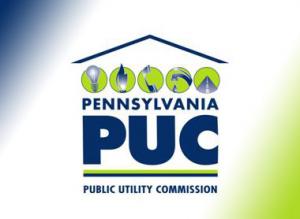Rate Case Roundup: Pennsylvania

The Pennsylvania Public Utility Commission ruled in both a water utility rate docket and a natural gas local distribution company (LDC) rate case as last year was coming to a close. Both rate orders were predicated on proposed joint settlements and each commemorated substantially reduced rate hikes compared to what was first requested.
In the water proceeding, Pennsylvania-American Water Company (PAWC) had applied for $107.9 million in additional revenues for its water and wastewater services. That would have been an increase of about 16.4%. In the end, however, the negotiating parties reached consensus on a rate increase of $61.85 million instead, a rise of just 9.4%. Nevertheless, the commission projected that the average residential customer will still see a fairly significant billing impact of more than $5 per month.
Aware that such an increase may be especially difficult for financially challenged customers to bear, the stipulation requires the low-income discount applicable to the residential customer charge to be increased proportionately. For water service, that means that the discount for qualifying limited-income customers will go from 80% to 85%. For sewer service, the discount for income-eligible consumers will go from 15% to 20%. The utility attested that it intends to continue to rely on community-based program administrators for implementing its various low-income assistance offerings.
Although the utility had stated in its rate petition that its need for additional revenues was driven in part by pressing infrastructure upgrade projects, particularly after taking over formerly municipally run water services in Scranton and New Cumberland, PAWC consented in the settlement to refraining from introducing a distribution system improvement charge (DSIC) in calendar year 2018. However, the stipulation does permit the company to consider a DSIC in 2019. But no further base rate increase can be sought before March 31, 2020 at the earliest.
The commission remarked that the new PAWC rate agreement does not establish a specific ROE for the company. Rather, it merely says that the ROE is not to exceed the quarterly ROE used by the commission’s Bureau of Technical Utilities Services. Pennsylvania Public Utility Commission et al. v. Pennsylvania- American Water Co., R-2017-2595853 et al., Dec. 7, 2017 (Pa.P.U.C.).
In the natural gas rate proceeding, the LDC, Philadelphia Gas Works (PGW), had petitioned for $70 million in rate relief, which would have been an increase of 11.6%. But the stipulation approved by the commission granted a rate increase of only about 6.8%, or $42 million. While the commission did accept the settlement as submitted, it commented that as a “black box” agreement, the commission had no way of knowing exactly what the various party positions had been or how they arrived at the conclusions they did.
At the same time, though, the commission said it was cognizant that PGW’s rate request had been grounded on a growing awareness of the need for repairing and replacing aging pipelines and other infrastructure. The LDC had indicated that particularly since its service territory is entirely urban, with large numbers of limited-income ratepayers, it realized that it must address the risks inherent in its present system and faced by many of its customers.
As a result, the company agreed in the settlement to pursue an innovative two-year pilot designed at remediating hazardous heating conditions in lower-income households and older premises. The new program will include weatherization assistance for qualifying consumers as well.
Moreover, to further improve other customer assistance programs, PGW pledged to explore additional avenues for making its service both safer and more reliable. Among the possibilities thereto are enhanced outreach efforts to consumers with prior high balances and arrearages, more streamlined enrollment processes for bill payment assistance plans, and modifications to the LDC’s existing “crisis acceptance” policy.
As with the rate agreement applicable to PAWC, the one for PGW included a base rate freeze or stay-out provision, under which the LDC is foreclosed from filing another general rate case prior to December 1, 2019. Pennsylvania Public Utility Commission et al. v. Philadelphia Gas Works, R-2017-2586783 et al., Nov. 8, 2017 (Pa.P.U.C.).



